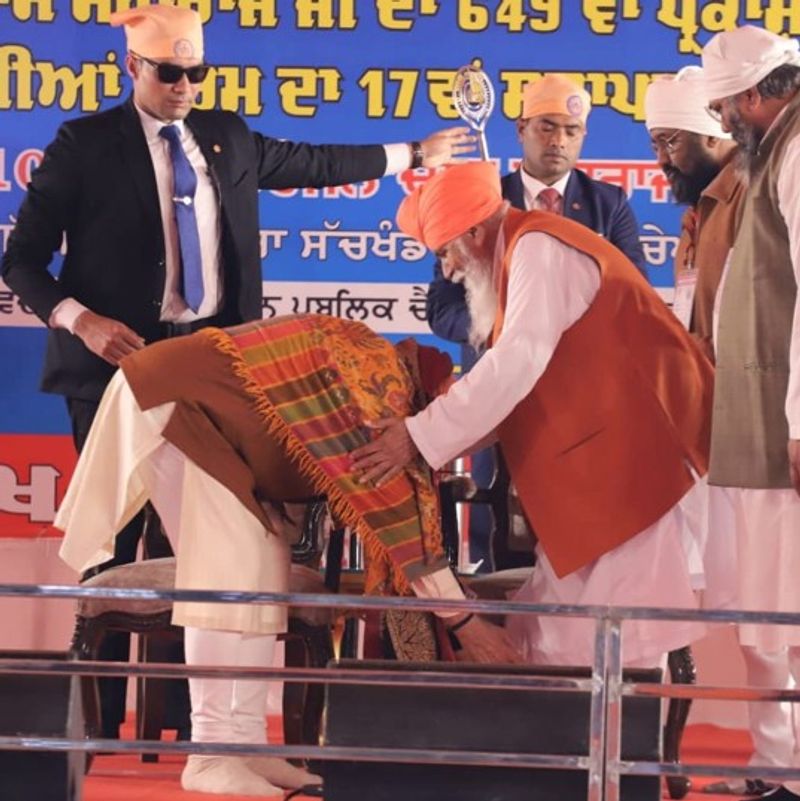Listen To This Post
Ludhiana, The Kisan Mazdoor Morcha (KMM) on Monday convened an emergency meeting in Ludhiana to intensify opposition to the Punjab Government’s land pooling policy, calling it a “coercive attempt to acquire fertile agricultural land under the pretext of urban development.”
The meeting brought together representatives from multiple farm outfits who agreed that a fragmented approach would weaken farmers’ bargaining power and that only a common front of resistance could prevent what they perceive as “backdoor land grabbing.”
August 26 Joint Meeting Called
As part of this strategy, the KMM has formally invited the Samyukt Kisan Morcha (SKM) to a joint convention on August 26 at Kisan Bhawan, Chandigarh. KMM leader Sarvan Singh Pandher said, “This government is deliberately trying to divide unions and confuse the public. The only answer is unity. Punjab’s land, livelihood and rural identity are under threat.”
Policy Confusion Fuels Distrust
Farm leaders also alleged that the AAP-led state government has failed to maintain transparency and consistency on the land pooling initiative. “While the Chief Minister claims it is voluntary and farmer-friendly, other leaders push for rapid acquisition around major urban centres. This contradiction creates distrust and strengthens farmers’ belief that the policy aims to benefit developers and industrialists at their cost,” said a union representative.
Why Land Pooling is Contentious
Punjab has long been resistant to large-scale acquisition of agricultural land due to its historic dependence on farming and high population density in rural areas. The state had witnessed stiff opposition to the 2008–2016 master plans, which proposed land pooling across 24 towns. The issue also ties into Punjab’s socio-economic psyche, where farmland is viewed as family heritage rather than just an economic asset.
Farmers argue that unlike states with surplus or underutilised land, Punjab’s fertile tracts are central to India’s food security, and diverting them risks destabilising rural livelihoods. Earlier instances, such as industrial projects abandoned due to lack of land, have become political talking points—fueling fears that the policy primarily benefits urban developers and big investors.
Political Implications for the Mann Government
The AAP government has been pitching land pooling as a “win-win model,” citing its successful implementation in Mohali, Ludhiana and Patiala for over a decade. Officials argue that the policy is vital for creating land banks to attract industrial investment and transform Punjab from an agrarian to an industrial and services-driven economy.
However, the growing farmer unrest could create political headwinds for Chief Minister Bhagwant Mann. Farmer unions played a critical role in the 2022 electoral shift in Punjab and continue to hold significant sway. A prolonged agitation against land pooling—particularly if spearheaded by a unified SKM—could politically isolate the government and shift the discourse ahead of future state and national elections.
Political analysts suggest that the government’s success in implementing this policy without triggering major unrest could become a litmus test for its handling of sensitive agrarian issues. “Land in Punjab is not just an economic resource but a cultural identity. Mishandling this debate could cost AAP its rural support base,” a political observer noted. The August 26 meeting is expected to formulate a coordinated plan, which could include district-level protests, legal challenges, or even a statewide movement reminiscent of the 2020–21 farmers’ agitation against the Centre’s now-repealed farm laws.















